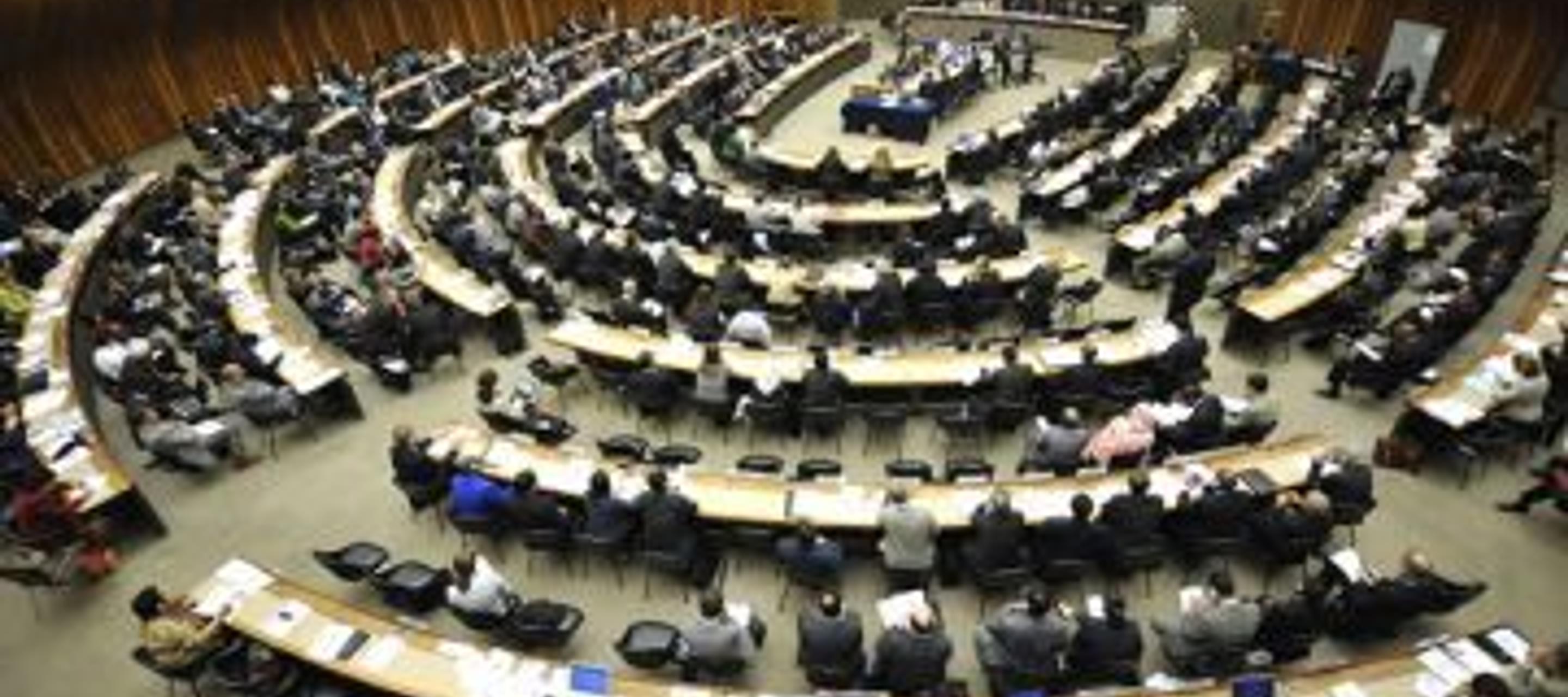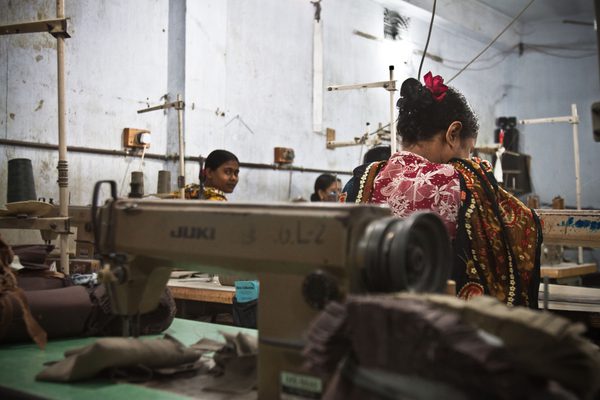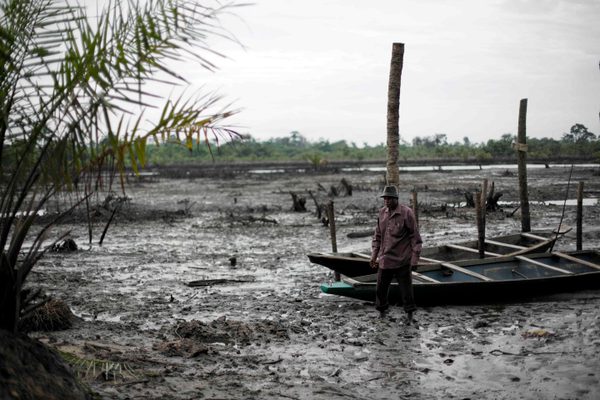A Business and Human Rights Treaty? More immediate actions would make a bigger difference
26 June 2014

In the fifth and final part of our series on the implications of a proposed new international treaty addressing human rights abuses involving businesses, IHRB's Salil Tripathi offers his reflections on the road ahead.
Imagine if all governments took their responsibility to respect, protect and fulfill human rights seriously, and if companies complied with the law. Then there would probably have been no need for a movement to make business accountable for human rights, nor would a mandate have become necessary at the United Nations to develop guiding principles for business and human rights.
And certainly, there would not have been any need for a framework that calls upon governments to protect rights, companies to respect them, and develop remedies where protection gaps exist. But because too many governments remain unwilling or unable to protect human rights, and because some companies knowingly or unintentionally abuse rights, we have international campaigns, litigation, the UN “Protect, Respect, Remedy” framework and Guiding Principles on Business and Human Rights, and a plethora of voluntary and semi-mandatory initiatives all seeking to tackle these accountability gaps. Something is broken and it needs fixing.
The various commentaries in this series have focused on the question of whether an international treaty for business and human rights could help move us towards greater accountability and greater protection. Each has started from the premise that the world is not perfect, and even if that perfect world seems far, major steps need to be taken now, to protect marginalized and vulnerable people from corporate acts of commission or omission and state failure to regulate corporate conduct.
Several leading non-governmental organisations have invested heavily in building momentum towards a new treaty partly out of frustration over what they see as the slow pace of change in corporate behaviour. Many companies, which are sincere about implementing their responsibilities as set out in the UN Guiding Principles are perplexed by the clamour. They argue that the Guiding Principles are only three years old, and to expect major transformation in such a short period is unrealistic, if not overly ambitious. Governments who have invested heavily in promoting the Guiding Principles thus far and expect them to address the range of problems linked to corporate abuse of human rights in a substantial manner are puzzled about what they should do next.
It is in that context that two draft resolutions currently before the Human Rights Council in Geneva should be seen. One, proposed by Ecuador, seeks an international treaty to address corporate rights abuses. Ecuador’s proposal has the support of several governments, including Cuba, Venezuela, and South Africa. Ecuador’s initiative may be partly born out of its own frustration with litigation against Chevron, the US oil major, over health and environmental impacts of its operations in Ecuador.
Without commenting on the merits of the case in Ecuador, the fact remains that in many instances of human rights abuses, victims have found access to remedy to be a cumbersome, expensive, and arduous process. Again, without arguing the specifics of the case, victims of the gas disaster in Bhopal, India, continue to demand justice 30 years later. Ogoni people in the Niger Delta would still like their land cleaned up, and victims of violence, including the controversial executions of the Ogoni Nine in 1995, have been seeking justice in courts outside Nigeria. Some families of the victims of the Rana Plaza disaster in Bangladesh last year still await compensation. The list is long. Granted, there are issues of extra-territoriality involved, and to be sure, liability (state or corporate) in each case has to be proved. Regardless of that, the fact remains that some of the poorest victims in the world have not received justice in such cases. Ecuador’s proposal calls for a new process to “elaborate an international legally binding instrument to regulate, in international human rights law, the activities of transnational corporations and other business enterprises”.
Such a process, however, is unlikely to solve the problem of corporate involvement in rights abuses. As other contributors to this series have pointed out, treaty negotiations at the United Nations are notoriously slow, and they raise the glimmer of hope that there would be a remedy some day, but when the text is finalized and approved, it is inevitably a compromise among governments. Such an instrument will in all likelihood bear little resemblance to the expectations of those seeking justice. Equally important, the time it would take to reach such an outcome could stretch to decades. Consider how long it took to establish an International Criminal Court to try international crimes such as genocide, crimes against humanity and war crimes, and consider too the caveats placed which limit and narrow the scope of the jurisdiction of the Court. There is no reason to believe that the process of negotiating an international treaty for business and human rights would be any different.
So what alternatives are available? The other resolution, proposed by Norway and a number of governments who have supported the Guiding Principles, calls for a renewed and somewhat expanded mandate for the expert Working Group on business and human rights that was created three years ago. This draft resolution seeks to strengthen implementation of the Guiding Principles, to widen their dissemination and improve their uptake. It also calls on the Working Group to study the potential for a new legal instrument. There is nothing fundamentally wrong in promoting the Guiding Principles – in fact, that should be the basic step for all governments.
The Guiding Principles, at their core, inform companies and governments what they must do to live up to their responsibilities under the “Protect, Respect, Remedy” framework. Who would argue against that? But even the best-equipped, best-trained, and best-intentioned organization can end up in a situation where its actions cause or contribute to human rights abuse. The Guiding Principles were never meant to be a shield, nor an imprimatur on companies. Simply expressing adherence to the Guiding Principles, clearly isn’t enough. In the field of human rights, there is never “enough.” Just as the best-trained driver can have a road accident, so can a company which has made serious efforts to mainstream the Guiding Principles within its DNA end up facing a human rights crisis.
Clearly there is need for both: it is necessary – though not sufficient – for companies to live up to their responsibilities as set out in the Guiding Principles. Surely we should expect all governments to fulfill their existing obligations to protect against rights abuses caused by or involving non-state actors, which includes companies. And clearly there is need for more effective remedies to ensure that grave violations of human rights do not go unpunished.
But if a new treaty is not the solution in the short term, and simply promoting the Guiding Principles isn’t going to result in fast enough progress what actions can make a difference? Here are three recommendations for governments in the Human Rights Council to consider in the coming days:
- Strengthen the Council’s Universal Periodic Review process to ensure that hard questions are asked of governments with a persistent record of ignoring human rights abuses involving corporations. Governments should be asking each other - what accounts for the failure to prosecute companies who commit rights abuses? Where state capacity is weak, can the Human Rights Council create a financial mechanism to ensure that technical assistance to such governments, to improve (for example) police or judicial training is fast-tracked?
- Improve domestic legislation in all countries to make it easier for victims of human rights to access justice. This requires reducing barriers that make it difficult to file complaints, ensuring witness protection, providing for time-bound investigations, including clear and transparent communication with victims so that they know the state of their complaint, and due process and fair trial to ensure justice.
- Develop alternate dispute settlement mechanisms and non-judicial remedies for problems involving consumers, users, or communities and companies so that they are identified and addressed at an early stage, before they have escalated into a full-blown crisis, with demonstrations and protests that lead to possible confrontation with the company, jeopardizing its assets and staff, or with security forces. Many long-standing human rights disputes involving companies and communities have arisen out of incidents that could have been addressed early on, thus avoiding more serious abuses.
Clearly, the Human Rights Council cannot legislate these matters. But it can set in motion a process which would incentivize governments to take their obligations more seriously and protect marginalized and vulnerable people whose rights are infringed, while holding corporations involved accountable for those abuses. Unless steps are taken to address abuses at an early stage, and unless local prosecutors take their responsibilities seriously, victims will continue to demand a global solution such as a treaty to solve problems relating to corporate involvement in human rights violations. Doing so would be an illusion of a remedy, will take a long time coming, if it ever does, and what emerges may bear little likeness to what was originally intended.
The Guiding Principles are extremely important, they form the base for any further action – but they represent only the first step in a thousand mile journey. The idea is to keep marching.




